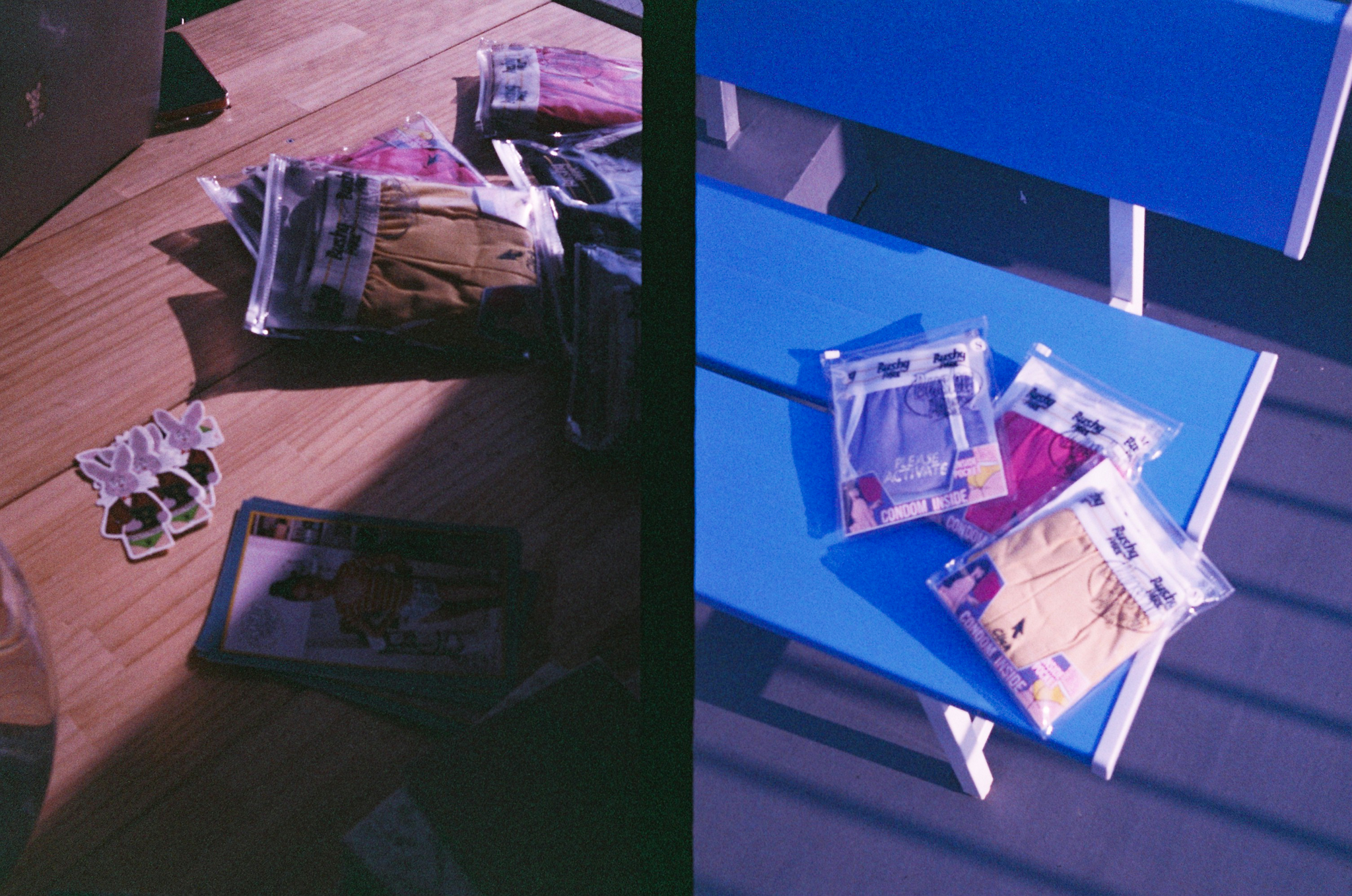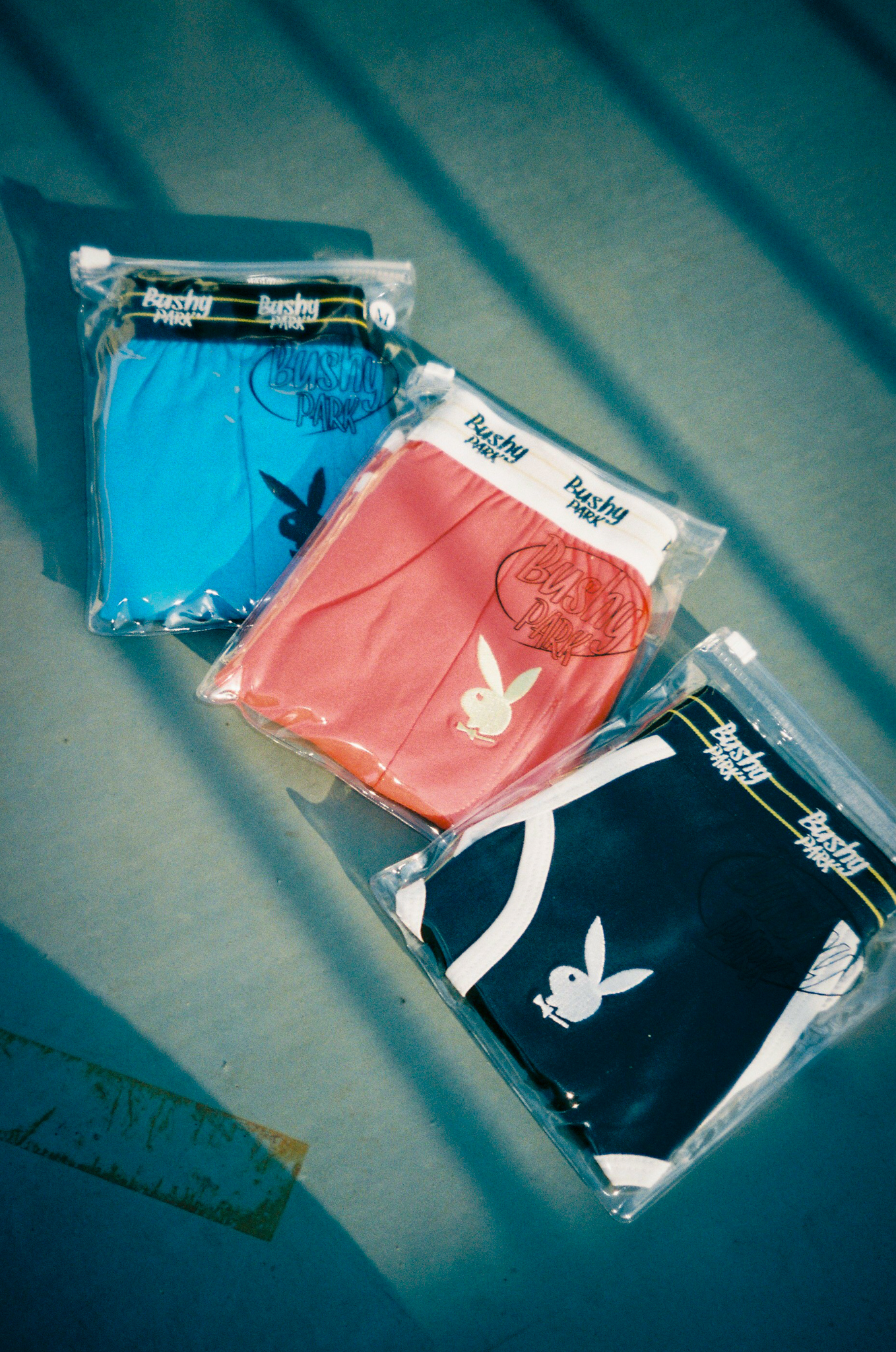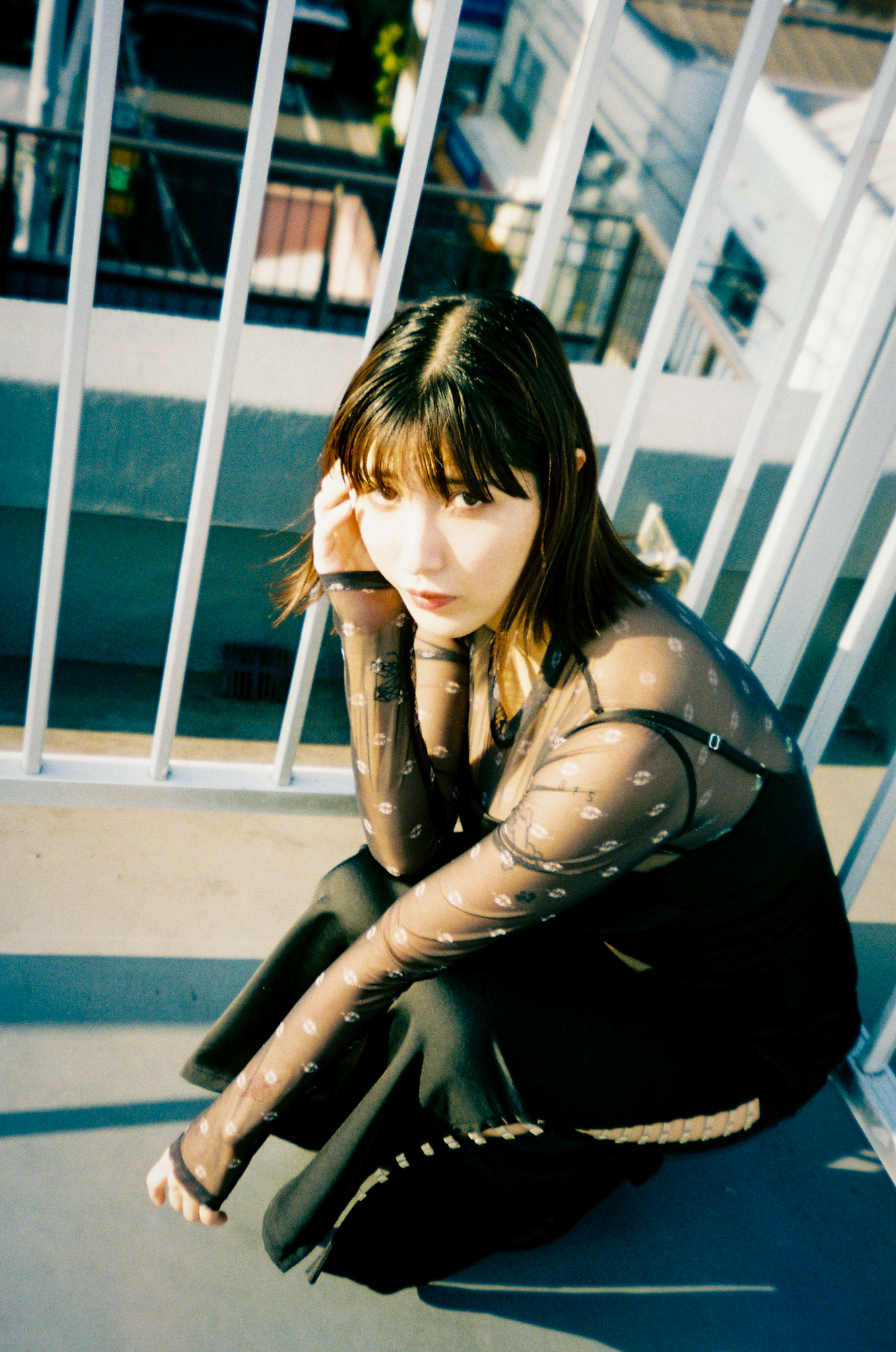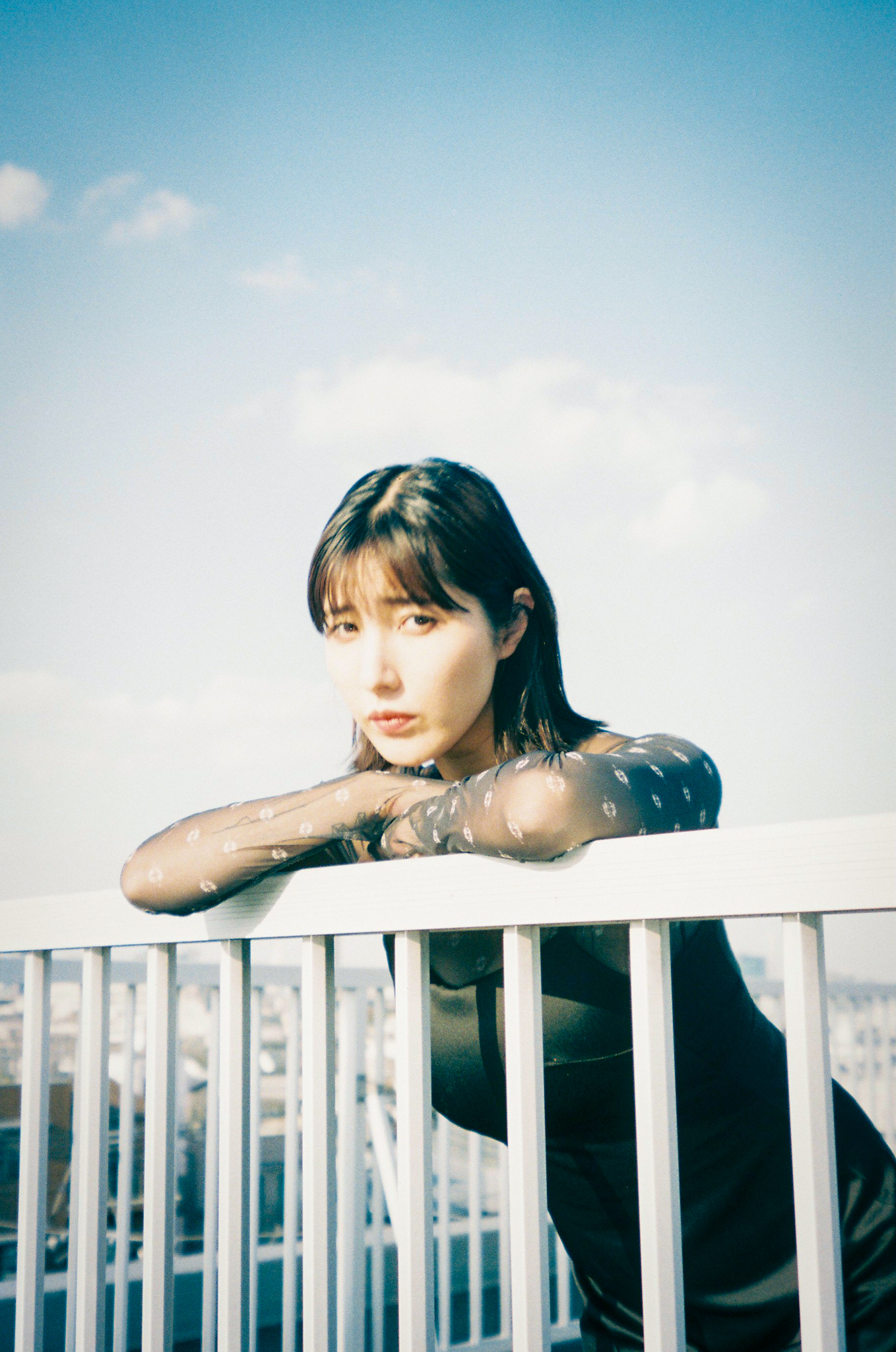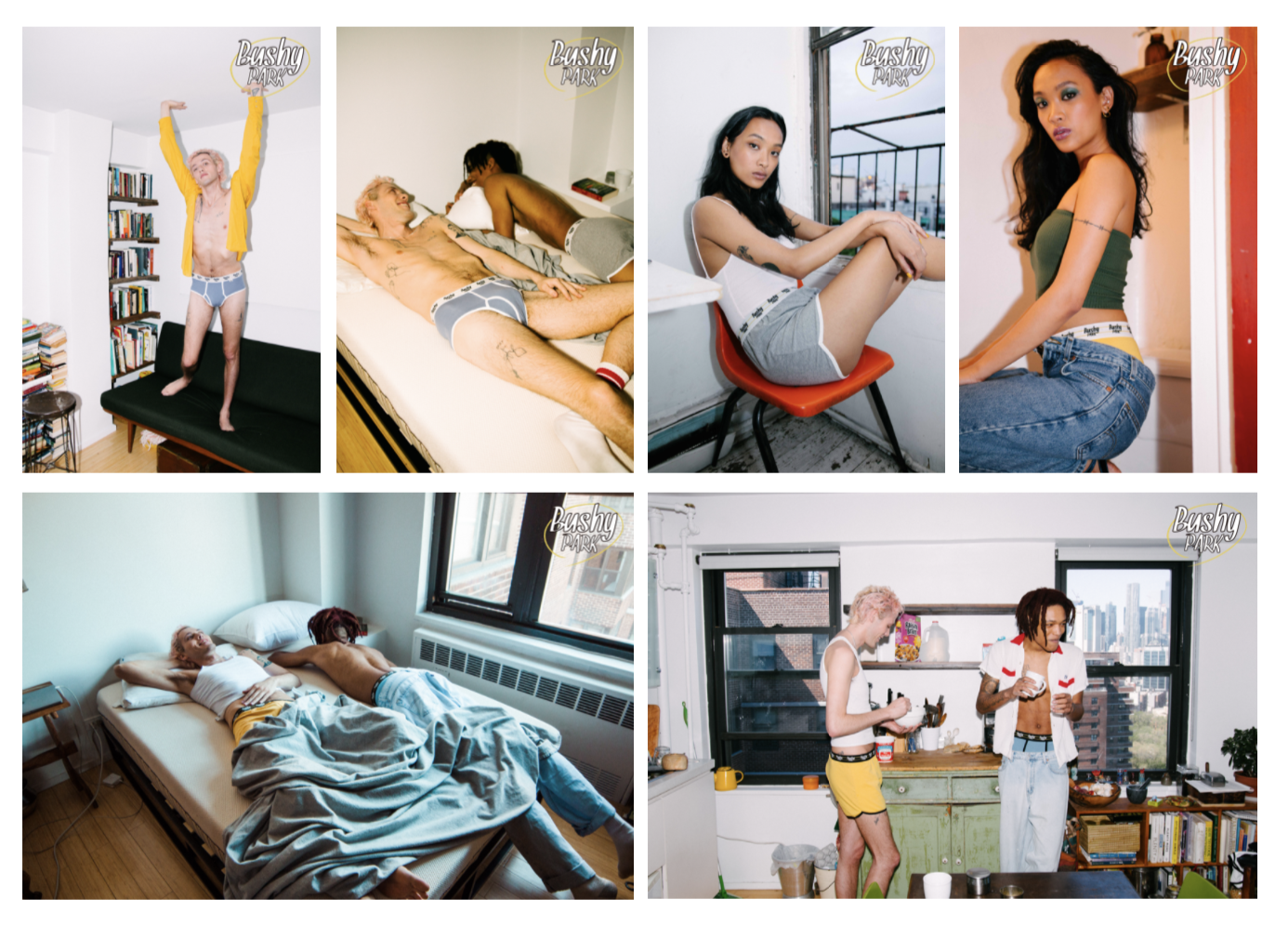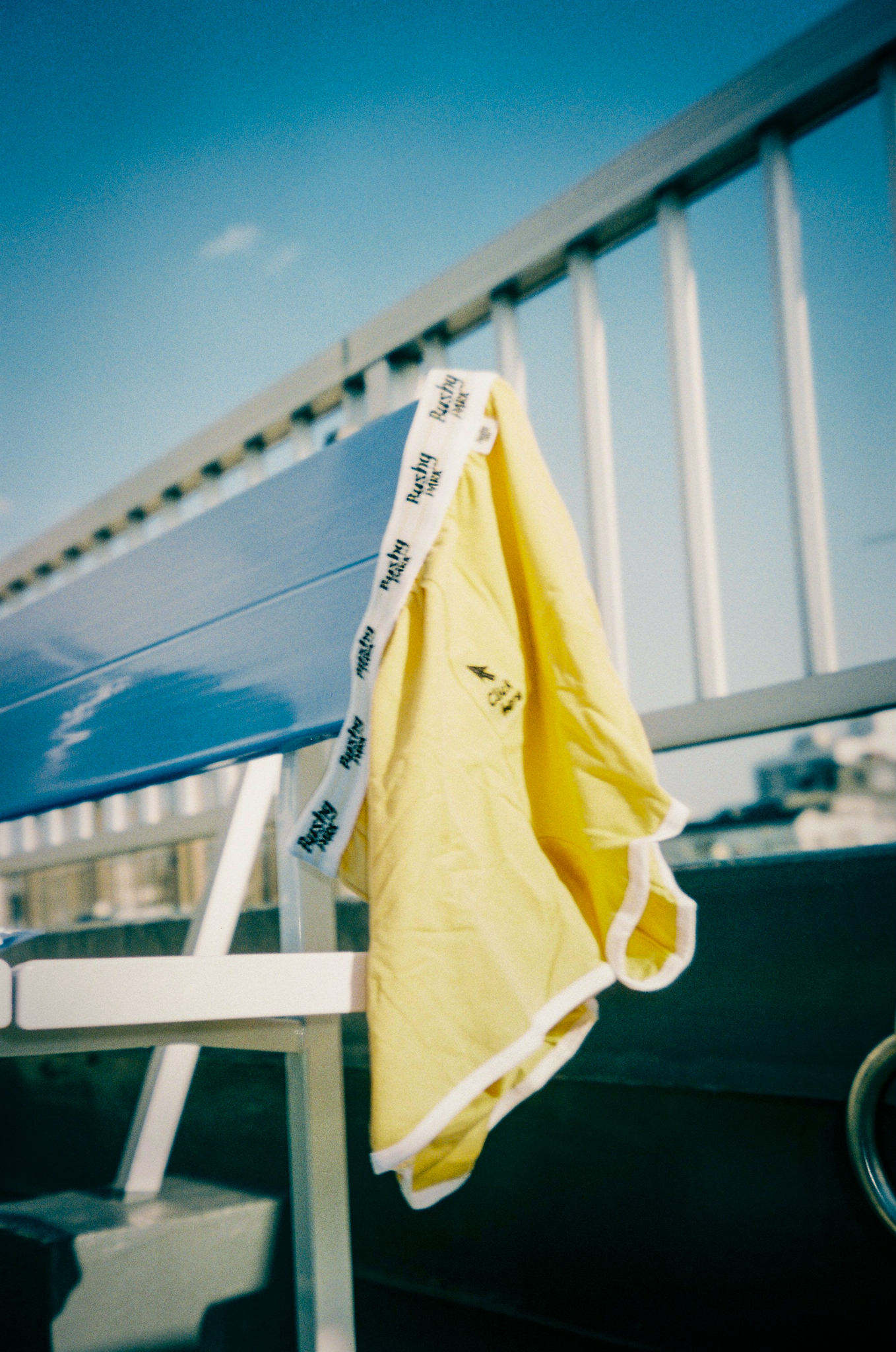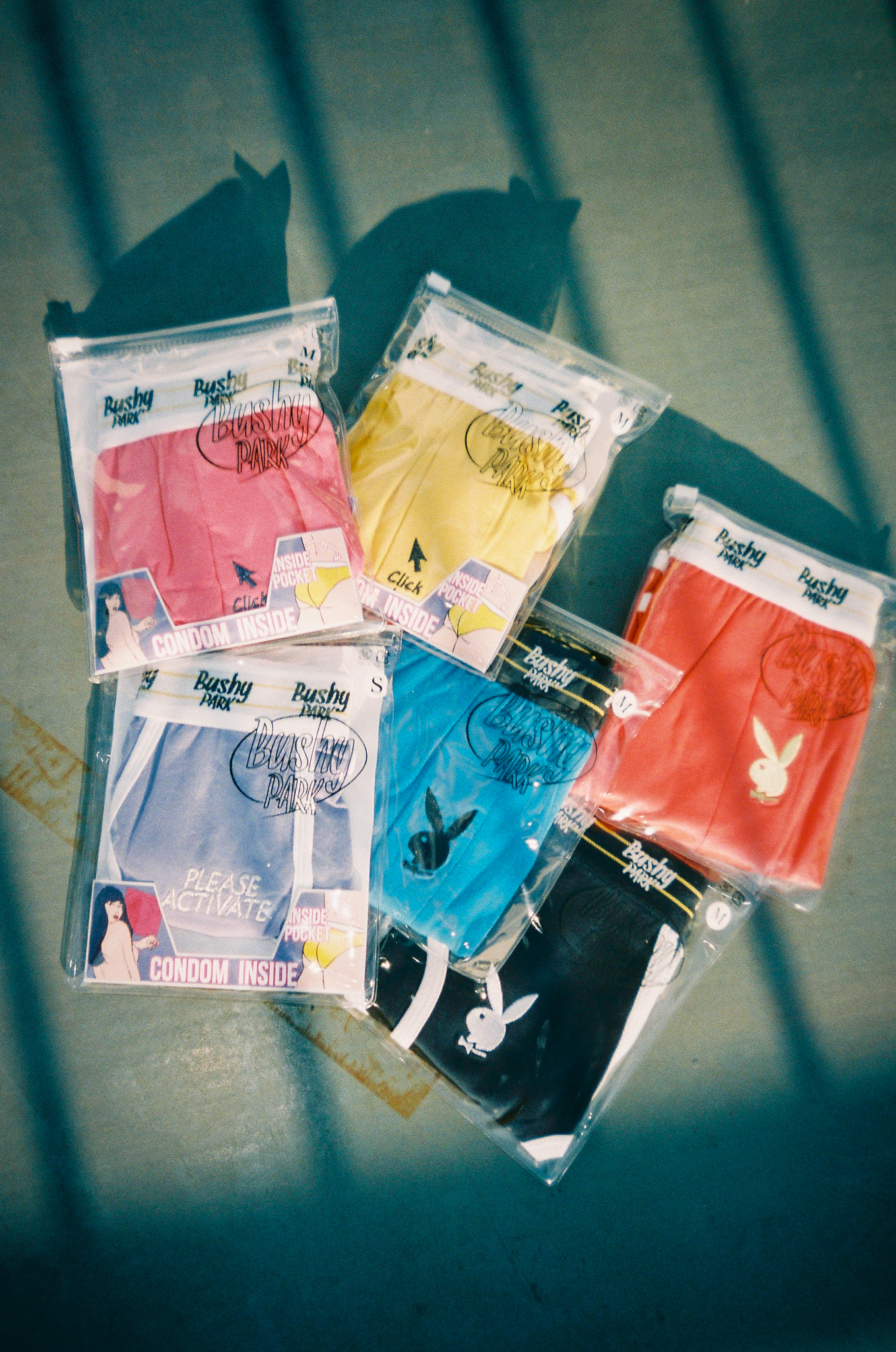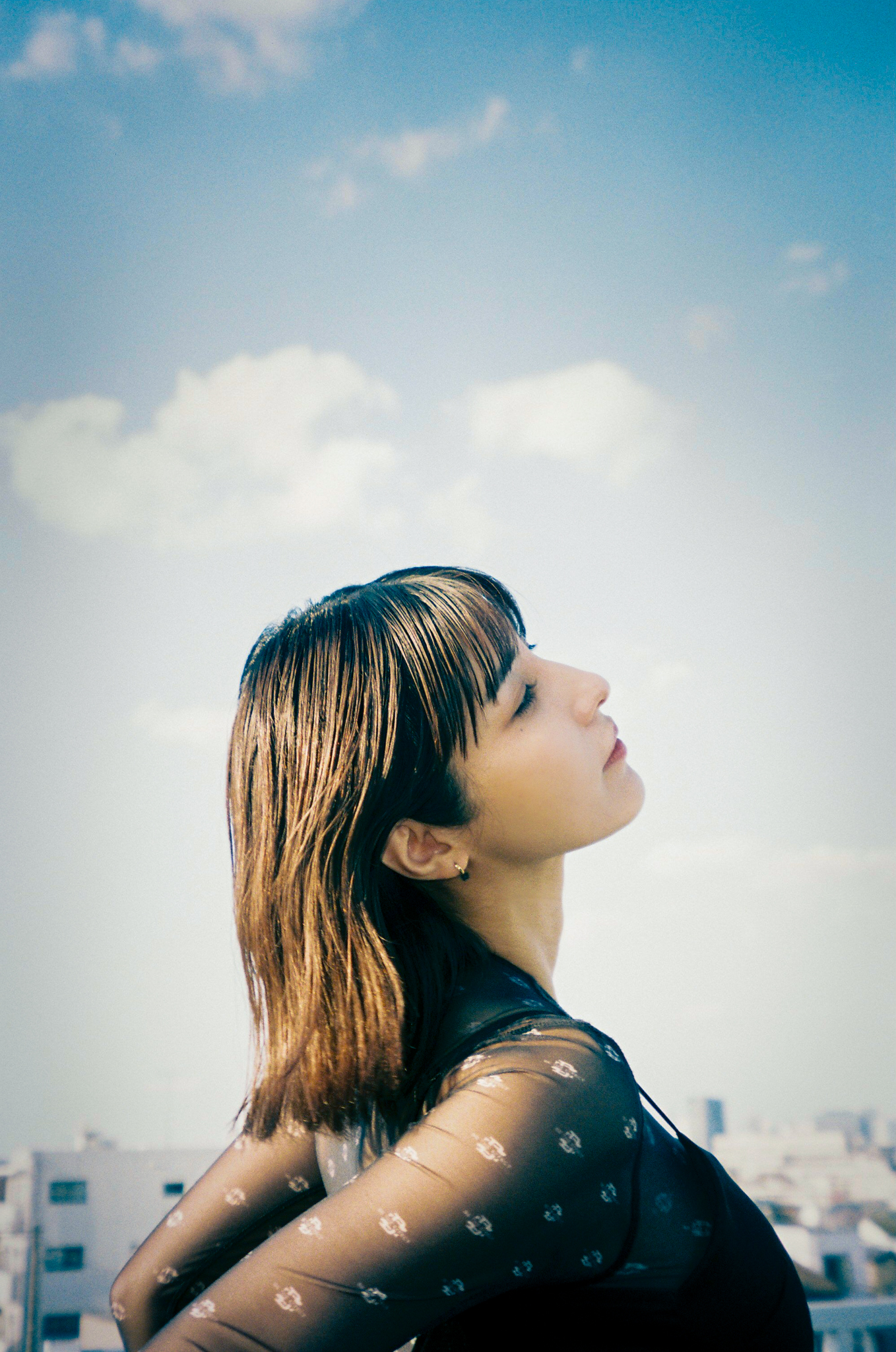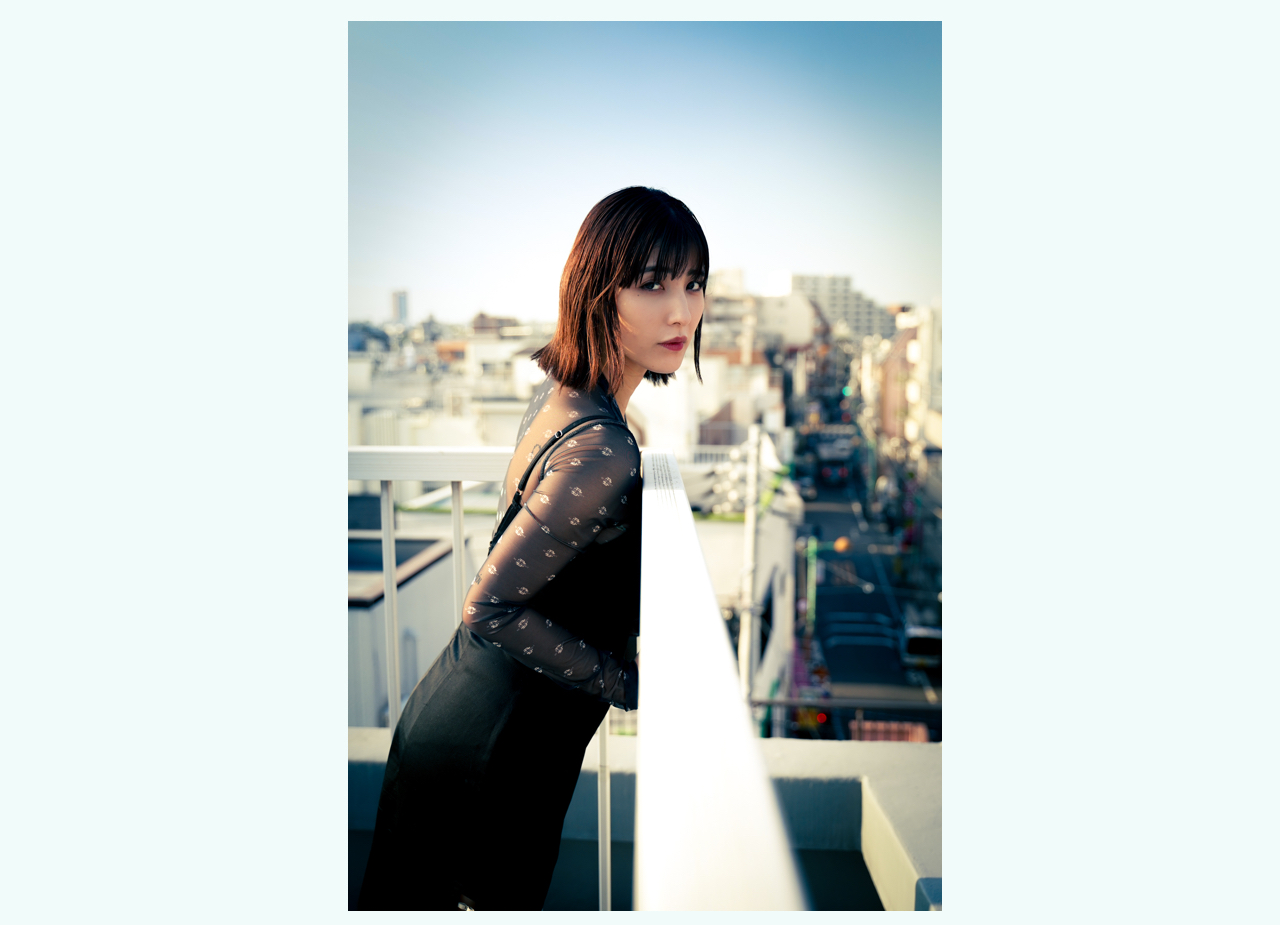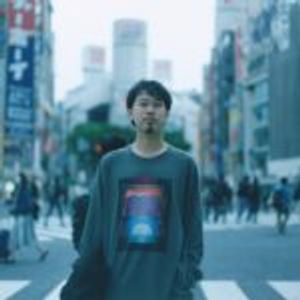As a gravure model (Japanese equivalent to a glamor model), Bambi Watanabe garnered attention in 2019 after being on the cover of a foreign Playboy issue. In the same year, she founded gender-neutral underwear brand Bushy Park under the concept of producing “Underwear that anyone can wear, regardless of gender.” The brand’s features are its tongue-in-cheek nature, as seen in stitched messages like “PLEASE ACTIVATE” and “Click here” on the crotch area, and the use of loud colors that aren’t gender-coded.
One could interpret the underwear designs as the antithesis of queer issues being seen as too complex to approach. Watanabe asserts that she strives for diversity and acceptance, where people can wear what they want at any size.
What does Watanabe want to say through Bushy Park’s gender-neutral underwear, something one only shows to a lover and a garment that best resembles what one feels inside?
Gender-neutral underwear for everyone
ーーYou’ve built a career as a gravure model. You graced the cover of a foreign Playboy issue and became a Playmate (an official model for the magazine). Currently, you’re the creative director of Bushy Park, a gender-neutral underwear brand. What made you start it?
Bambi Watanabe (Hereinafter Bambi): I’ve been working as a gravure and underwear model, where I show a lot of skin, since high school, but I wanted to start my own business. I didn’t know what I wanted to do specifically, but I felt like I could run a business using underwear because that’s what I wear for work. That’s how it started.
ーーI didn’t know you started doing gravure and underwear modeling in high school.
Bambi: I did. Triumph International Japan held a national “best hips” contest in 2018, and I won that. I then got scouted by a talent agency for mainly gravure idols and made my debut in the entertainment industry as a high school student.
ーーI heard you were the first Japanese person to be on the cover of Playboy. How did that come about?
Bambi: I auditioned for it around three years ago. I struggled with how Japanese gravure models had to butter up to fans at the time. People thought black-haired “younger sister” types were better. We weren’t allowed to dye our hair, wear unnatural-looking makeup, and tan. It didn’t feel authentic to me. When I went to New York, I truly felt like I would break down if I continued to work within Japanese media. That’s why I decided to audition for an international publication of Playboy.
ーーWhy Playboy?
Bambi: Since high school, I would collect different magazines because I thought women’s bodies were beautiful. Among them, I liked foreign entertainment magazines for adults. I especially admired models in Playboy; they were so pretty.
ーーYour brand collaborated with Playboy. Was this made possible because you became a Playmate?
Bambi: The collaboration didn’t happen only through connections as a Playmate. Since becoming a Playmate, I wanted to use the famous rabbit logo for my brand, so I asked them. They understood the designs and what my brand was about, and our official collaboration became a reality.
The promotional video for Bushy Park x Playboy
ーーAt Bushy Park, the concept is “Underwear that anyone can wear, regardless of gender.” Why did you become interested in the idea of gender-neutral underwear?
Bambi: When I first started contemplating starting an underwear brand, I planned on making it for women. But when I came up with my ideal design, I couldn’t make it happen budget-wise. So, I went back to the drawing board and created underwear prototypes for men. Once I started making more, I realized it could be cute on women, and I also wanted to wear them. I asked my childhood friend and designer, who happens to be queer, to design for the brand. So, I decided to make the brand gender-neutral.
ーーCome to think of it, you see women wearing briefs for men on some American films and shows.
Bambi: Right! In America, it’s not unusual for women to wear briefs. In America and Europe, there are a lot of gender-neutral underwear brands, but there isn’t a lot in Japan. There isn’t a widespread culture of women wearing briefs. It’ll make me happy if our values toward wearing underwear could change because of Bushy Park.
ーーSo, you didn’t set out to create a gender-neutral brand. I thought you started making gender-neutral underwear because you were interested in the queer community.
Bambi: Wako Elementary School, where I studied, had a strong sense of freedom; I didn’t question others’ sexuality in terms of who liked who. I grew up and spent my 20s not knowing about discrimination against queer people. But once I started working with my childhood friend and designer, I began to hear about real issues people in the community have.
Among my childhood friends, many of them went abroad and moved there after graduating from high school. I would visit them, and some of my guy friends would wear heels and makeup and have a partner of the same gender. When I asked them why they didn’t return to Japan, they said things like, “People would laugh at me if I dressed like this” and “I haven’t come out to my parents yet.” They told me it was hard to live as their true selves in Japan. I was glad my friends had a positive mindset, where they thought they should move abroad if Japan wouldn’t accept them. That’s also why I never felt like they discriminated against me because of my gender, either. But when I heard it was tough for them to live in Japan, it made me sad.
ーーIt’s true. I get the impression that it’s easy to feel ashamed here.
Bambi: Compared to a few years ago, Tokyo’s becoming more open, and there are fewer instances of people talking behind other people’s backs. But when you go to other regions, many people are still getting bullied. They can’t come out to their parents or blend in with their peers at school; they have a difficult upbringing. I hear about such things from people from the queer community and those working in Shinjuku Nichome.
ーーSo, you began learning about such issues after starting your brand.
Bambi: Yes. I began taking it seriously because of Bushy Park. Of course, I knew about the community, but I discovered the reality—like how within Asia, Japan is way behind, and bullying still exists—after working with my childhood friend, who I mentioned before. Right now, I go to Nichome to listen to people and actively partake in pride parades in New York, Europe, and Taiwan, the first Asian country to legalize gay marriage. I’m learning by listening to many different people.
Using a streetwear vibe and humor to bridge the gap between queer people and cishet people
ーーHow did learning about queer and gender issues influence your brand?
Bambi: After starting the brand, I’ve come to feel like queer and gender issues are very dire. And I need the proper knowledge to talk about said issues online. Of course, it’s crucial to possess the knowledge and be understanding. But my approach has shifted to trying to make both queer and cishet people see that it’s simpler than that.
ーーCould you expand on that?
Bambi: Whenever I go to queer events and panel discussions, this is obvious, but everyone there has a connection to being queer. The speakers are queer, and so are the people in the audience. But I don’t think discrimination will disappear if [queer topics] don’t spread further. With Bushy Park, not only do I want to reach queer people or those interested in the community but those on the polar opposite side. That’s why I choose locations that are associated with streetwear. I sometimes use skaters as models and take streetwear-ish photos and tones. Aoi Industry does the embroidery. Some people tell me that Bushy Park is a brand that’s run by someone who’s not in the community. It’s not about who’s in or not in the community; if we don’t get rid of that barrier, then I don’t think discrimination will ever go away. I feel like it’s my mission to get rid of this boundary.
ーーWhat factors are essential in regards to the underwear design?
Bambi: The things I prioritize are the size and color. The underwear comes in small, medium, and large, as people come in different sizes. To create the best fit for both men and women, we use rubber that stretches and doesn’t get too tight. I try to use various colors so that it’s not associated with gender discrimination. These are the two key aspects in regards to creating gender-neutral underwear.
ーーThe placement of the icon is unique. Is it a deliberate choice?
Bambi: Yes. I don’t want people to think gender-neutral garments are an unapproachable topic. The humorous words and motifs are on the crotch area so that people who find out about the brand could find it amusing.
ーーWhere does the brand name come from?
Bambi: There’s a park in the UK called Bushy Park, and it means a fun, bushy place like thickets and forests. It has a different meaning in slang, and people in the know find it funny like, “What a wild brand” and “That’s amazing” (laughs).
ーーWhat sort of brand do you want Bushy Park to be in the future?
Bambi: Originally, I planned on throwing events like shows and parties instead of only selling underwear. But covid happened right after I founded the brand in 2019, and I couldn’t do it. In 2020, I set up a pop-up shop in Seibu Ikebukuro and a booth at an event in Miyashita Park, but I still couldn’t organize shows and parties. I want to eventually make a physical event happen instead of stopping at running a gender-neutral underwear brand. Not only do I want to throw events in Nichome, but also Shibuya, Harajuku, and regions that still have problems. The idea is for Bushy Park products to “tag along” to those events.
ーーIt’s an interesting notion for products to tag along to a brand’s event or show.
Bambi: I believe underwear garments are delicate things only shown to a crush or lover. In that way, it’s the closest thing to your inner feelings and heart. Different people have different physical parts, and that’s why I want to create and spread gender equality through underwear that’s closest to one’s inner life. I want to overcome physical differences and reach others’ inner lives.
ーーLastly, what can we do to manifest and spread gender equality?
Bambi: It’s simple; you have to accept other people’s individuality and diversity. If your friend likes the same gender or is a man who enjoys wearing makeup and heels, don’t make fun of them and don’t laugh at them. It’s enough to accept them as they are. It’s such a simple thing, but it’s challenging for some to do it. Instead of thinking it’s too hard, each person needs to be aware. If we want to create and spread gender equality, that’s imperative.
ーーTrue. It’s easy to say that we need to recognize others’ individuality and diversity, but discrimination exists because we can’t put that into action.
Bambi: Whenever I get interviewed by media outlets about queer issues, they sometimes ask me about deep, serious topics. But there are many things I can’t talk about as someone who’s not queer. That’s why my message is simple; accept others’ individuality. I hope to continue making underwear, which people only show to their lovers, as one way to convey my message.
ーーIt’s great that the underwear has humor. Even for someone like me, who’s not knowledgeable, it’s relatable.
Bambi: Anyone can learn about things through watching foreign shows and documentaries on streaming services like Netflix. Not only gender issues but sustainability and environmental issues too. I think the younger generation has more knowledge and education than ours. If we make things easier to understand and inclusive, we can make a difference right now. I’d be happy if Bushy Park could contribute to that in a small way.
Bambi Watanabe
Since debuting in 2007 as a gravure model, Bambi Watanabe has released multiple photo books and DVDs. She became a Playmate after being on the cover of a foreign Playboy issue in March 2019. Aside from being a gravure model, Watanabe works as an actor and has been in Tokyo Island (2010) and the TV series Ama Chan (2013). She’s also been in variety shows such as Dancing Sanma Palace and Waratte Iitomo!. In 2019, Watanabe founded the gender-neutral underwear brand, Bushy Park.
https://onlyfans.com/bambiwatanabe
Instagram:@bam0915 / @bushypark_tokyo
Twitter : @0915Bambi
Photography: Sumire Ozawa
Translation Lena Grace Suda

